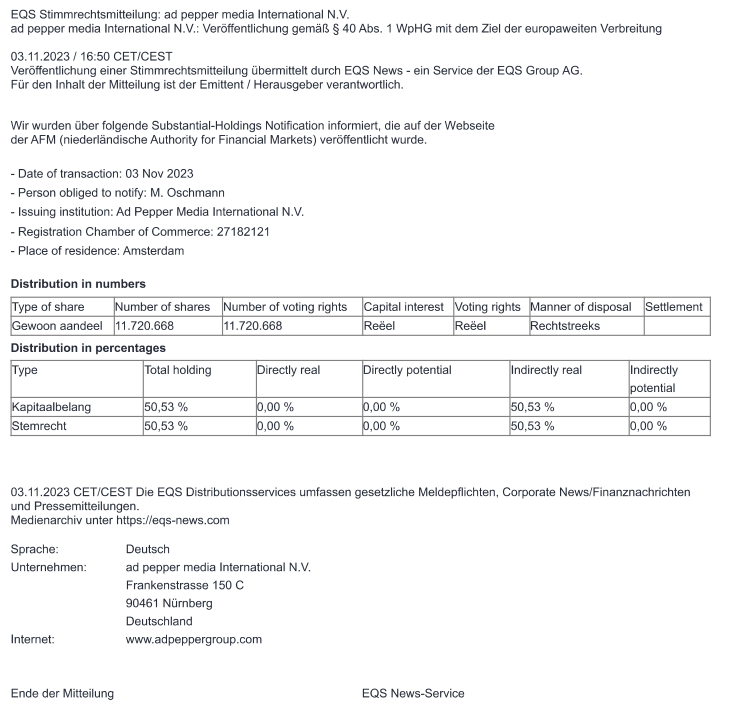The Dax Index: A Deep Dive Into Political And Economic Influences

Table of Contents
Political Influences on the DAX Index
The DAX index is not immune to the political landscape. Government policies, geopolitical events, and the overall political climate significantly influence investor sentiment and, consequently, the index's performance.
Government Policies and Regulations
Government policies, both fiscal and monetary, play a significant role in shaping the DAX.
-
Fiscal Policy: Government spending and taxation directly impact the profitability of DAX-listed companies. Increased government spending on infrastructure projects, for example, can boost the construction and related sectors, while tax increases can reduce corporate profits and potentially dampen growth.
-
Monetary Policy: The European Central Bank (ECB)'s monetary policy, particularly interest rate adjustments and quantitative easing (QE) programs, profoundly affect the DAX. Low interest rates generally stimulate borrowing and investment, boosting stock prices, while interest rate hikes can have the opposite effect. QE programs, by injecting liquidity into the market, can also positively influence the DAX.
-
Regulatory Changes: New regulations, particularly in areas like environmental protection and labor laws, can impose costs on businesses and influence their performance. For example, stricter emission standards could significantly affect the automotive sector, a major component of the DAX.
- Examples: A significant tax cut could lead to increased profits for companies like Allianz (ALV) and BASF (BAS). Conversely, new environmental regulations might negatively affect Volkswagen (VOW3)'s profitability in the short term.
Geopolitical Events and International Relations
Global events and international relations exert considerable pressure on the DAX.
-
Global Events: Trade wars, international conflicts, and global economic slowdowns can all negatively impact investor confidence and lead to DAX declines. Uncertainty surrounding global trade, for instance, can heavily influence export-oriented DAX companies.
-
EU Political Landscape: Decisions made within the European Union, such as Brexit or changes to EU regulations, can have significant ripple effects across the European economy, including the DAX.
-
Political Stability: Political stability (or instability) in Germany and across Europe is a major factor. Periods of political uncertainty can lead to market volatility and negatively impact investor sentiment.
- Examples: The ongoing war in Ukraine has had a significant impact on energy prices and supply chains, negatively affecting numerous DAX companies. Brexit created uncertainty that impacted many German businesses.
Economic Influences on the DAX Index
Beyond politics, the economic climate significantly impacts the DAX. Macroeconomic indicators and sector-specific factors play crucial roles.
Macroeconomic Indicators
Key economic indicators provide insights into the overall health of the German and European economies.
-
GDP Growth: Strong GDP growth generally translates to increased corporate profits and higher DAX valuations. Conversely, a slowing economy often leads to declines in the index.
-
Inflation: High inflation erodes purchasing power and can negatively impact consumer spending and corporate profits, putting downward pressure on the DAX.
-
Unemployment: High unemployment signals a weak economy and reduced consumer spending, potentially leading to lower DAX performance.
-
Consumer & Business Sentiment: Positive consumer and business confidence indicates optimistic economic expectations and tends to support the DAX.
- Examples: High inflation rates in Germany could hurt consumer spending and negatively impact retailers listed on the DAX. Strong German GDP growth would usually be reflected in higher DAX values.
Sector-Specific Economic Factors
The DAX comprises companies across various sectors, each subject to its unique economic influences.
-
Automotive Sector: The automotive industry is sensitive to global economic conditions, commodity prices (e.g., steel, aluminum), and technological advancements (e.g., electric vehicles).
-
Technology Sector: Technology companies are affected by factors like technological innovation, global competition, and consumer demand for new technologies.
-
Financial Sector: Banks and insurance companies are influenced by interest rates, economic growth, and regulatory changes.
- Examples: A global chip shortage could negatively impact the automotive sector's performance, thereby affecting car manufacturers listed on the DAX. Increased demand for renewable energy could boost the performance of companies involved in this sector.
Inflation and Interest Rates: A Deeper Dive
The relationship between inflation, ECB-set interest rates, and the DAX is complex. High inflation often prompts the ECB to raise interest rates to curb price increases. While this can combat inflation, it can also slow economic growth and reduce corporate profits, potentially leading to a DAX decline. Conversely, low interest rates can stimulate economic activity but may also fuel inflation. A stagflation scenario (high inflation coupled with slow economic growth) presents a particularly challenging environment for the DAX, as it combines the negative effects of both high inflation and sluggish economic growth.
Conclusion: Understanding the DAX Index for Informed Investment Decisions
The DAX index's performance is a complex interplay of political and economic factors. Understanding the influence of government policies, geopolitical events, macroeconomic indicators, and sector-specific dynamics is crucial for developing effective investment strategies. The interconnectedness of these factors underscores the need for a holistic approach to DAX analysis. To make informed investment decisions related to the DAX index and the German and European economies, continue researching the DAX index and its intricacies. Consider exploring resources like financial news websites, economic reports from reputable organizations, and investment analysis tools to expand your understanding and refine your investment approach. By grasping the nuances of the DAX, you can navigate the complexities of this important market indicator and make more informed decisions.

Featured Posts
-
 The Professionals Guide To Achieving Ariana Grandes Look
Apr 27, 2025
The Professionals Guide To Achieving Ariana Grandes Look
Apr 27, 2025 -
 The Perfect Couple Season 2 Unveiling The New Cast And Its Literary Origins
Apr 27, 2025
The Perfect Couple Season 2 Unveiling The New Cast And Its Literary Origins
Apr 27, 2025 -
 South Africa And Tanzania Discuss Lifting Of Farm Import Ban
Apr 27, 2025
South Africa And Tanzania Discuss Lifting Of Farm Import Ban
Apr 27, 2025 -
 Pne Ag Ad Hoc Mitteilung Gemaess Artikel 40 Absatz 1 Wp Hg
Apr 27, 2025
Pne Ag Ad Hoc Mitteilung Gemaess Artikel 40 Absatz 1 Wp Hg
Apr 27, 2025 -
 Canadian Tesla Prices Surge Pre Tariff Inventory Liquidation
Apr 27, 2025
Canadian Tesla Prices Surge Pre Tariff Inventory Liquidation
Apr 27, 2025
